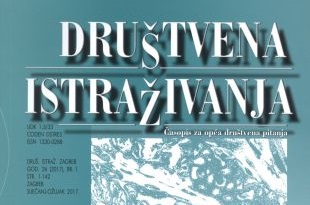EFEKTI EVALUACIJE I AKTIVACIJE NA PAMĆENJE AFEKTIVNIH PODRAČAJA
THE EFFECTS OF EVALUATION AND ACTIVATION ON REMEMBERING AFFECTIVE STIMULI
Author(s): Igor Kardum, Snježana ObrićSubject(s): Psychology, Cognitive Psychology, Evaluation research
Published by: Institut društvenih znanosti Ivo Pilar
Keywords: Affective Stimuli; delayed free memory; evaluation and activation;
Summary/Abstract: On a sample of 45 examinees the authors have examined the effects of evaluation and activation on immediate and delayed free memory, recognition and the initial phase of processing affective stimuli. The results obtained indicate that both in immediate and delayed memory examinees remember low activation affective stimuli more, while high activation stimuli are better recognized and produce more incorrect (yes) answers. Only in immediate memory are the unpleasant affective stimuli remembered better than the pleasant ones, while in delayed memory there is no difference between pleasant and unpleasant affective stimuli. Also, the unpleasant affective stimuli are better recognized, while the pleasant ones give rise to more incorrect (yes) answers. In general, the results of this research show that evaluation and activation both independently and in interaction have a significant influence on the memory of affective stimuli. The influence of these two dimensions on remembering affective stimuli is diverse, and is also dependent on the type of memory test used. The aforementioned results have been interpreted in the context of existing theories on the role of evaluation and activation in remembering affective stimuli.
Journal: Društvena istraživanja - Časopis za opća društvena pitanja
- Issue Year: 9/2000
- Issue No: 45
- Page Range: 115-136
- Page Count: 22
- Language: Croatian

